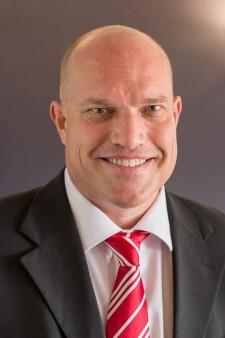Gys Kappers, CEO of Wyzetalk: 'The Mine of the Future'

CAPE TOWN, South Africa, November 16, 2017 (Newswire.com) - Gys Kappers, CEO of Wyzetalk, discusses his views on how mining companies need to find new ways towards a sustainable future and by using technology they can create real employee engagement – something that is very much needed if the industry is to survive.
The mining industry is in a crisis. Failure to get the policy, legislative, administrative and operating environment right is being compounded by a recline in resource demand and resulting excess capacity, weakening prices and increasing volatility. Many also need to mine deeper to reach new deposits, which is resulting in a significant increase in the cost of extraction and these costs are forcing mining companies to make difficult decisions to sustain short-term operations, while still adhering to long-term objectives. What’s more, advanced technologies are severely impacting the broader industry albeit in a seemingly unrelated way. Emerging products and services require new materials which are changing the mix in the demand for minerals and metals and this is expected to continue. This, of course, has long-term implications for the demand for primary resources. And for the foreseeable future, this state is the "new normal".
Shifting people from an income statement expense to a balance sheet asset is critical.
Gys Kappers, CEO of Wyzetalk
To cope with this "new normal", the mining industry will have to embrace this disruption as both a constraint and as an enabler. When considering digital disruption, most cite the example of machinery optimisation and how the mining industry can leverage digital technology to deal with the productivity and safety challenges they face. In fact, most of these focus on the technology dimension of this digital transformation and underemphasise the people, management and organisational dimensions. Few talk about the new future of work, the changing role of jobs and the new jobs that will emerge. Even less is said about how this digital transformation might be managed – a difficult process characterised by many knowns and even more unknowns. What will the mine of the future look like?
In essence, change in every respect is required for survival and at the heart of this change, is people. If mining companies are to succeed, they will require a deeper understanding of the shifting community to improve the social divide. Furthermore, increased demand for transparent and accountability in business transactions globally is forcing the sector to re-look at how people and the industry are managed.
There is an unwritten set of expectations of the employment relationship distinct from a formalised contract and this psychological contract will define the employer-employee relationship. This relationship needs to shift to view workers as people with families – rather than just the "hands", and only then are we are likely to see more bottom-line improvements as a result of more engagement, collaboration and organised activities that translate into more-inclusive teams, with a shared vision and a better relationship based on transparency and mutual respect. Shifting people from an income statement expense to a balance sheet asset is critical.
In order to do this, innovative thinking needs to influence the way mining companies engage with workers, their surrounding communities and those from their labour-sending areas. New technologies and ways of connecting have a potential to influence a different outcome for the broader community, one that makes the mining house and community share the responsibility for a changing landscape with divergent future scenarios.
With new tools comes a new emergent management philosophy and so we have to consider what it will take to appropriately transform the current management philosophy in the mining industry in ways that will enable them to leverage the potential benefits of digital technology and transformation.
As in any other age, management in the digital age should be concerned with the deployment and coordination of people and resources at various levels of the organisation to steer a new course to realising strategies. The difference here is that the organisation and its key resources will be digitally enabled with a view to becoming far more efficient. Structures and jobs will be fluid and permeable, merging into value eco-systems rather than value chains. People will work in virtual teams and disband as needs change. The management challenge will lie in data analysis and deploying and coordinating people and digital resources in ways that will enable people to do what they do best and digital technology to do what it does best.
Innovation should drive more than cost reduction – it can help mitigate and manage risk, strengthen business models and foster more effective relations. Mining companies need to prepare to shift traditional entrenched models, plan for future scenarios where collaboration is at the centre of a lean operation and use digitalisation to enable and drive the industry forward.
About Wyzetalk:
Wyzetalk is a digital engagement company. Our communication solutions and patented technology keep people in communities and organisations of any size and demographic connected, informed and productive all in one central mobile ecosystem from anywhere in the world. Send important messages to your audience, publish targeted content, recognise and reward, receive feedback and measure your communications campaigns more effectively. Dynamic connections, an informed workforce and real-time information at your fingertips help you make better decisions. For more information visit - http://www.wyzetalk.com.
Media Contact
Claudia Ferguson
Orange Ink
claudia@orangeink.co.za
Source: Wyzetalk